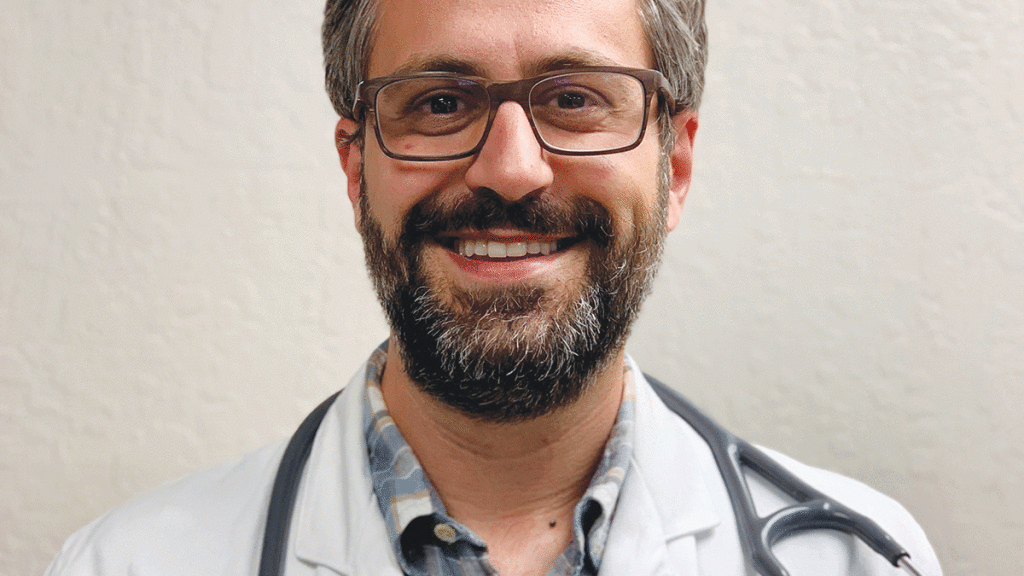For years, I’ve joked in my stand-up act that, “Back in the day, I was trying to look like Keith Richards. Now, I’m trying not to look like Keith Richards.” Even into my senior years, it worked, because with my oily skin and healthy habits, I didn’t look that bad. But after a recent two-month bout of complete sleep deprivation, I have gained considerable ground on Keith. Sleep deprivation has carved my facial wrinkles deep enough to smuggle drugs in, and my crow’s feet have become condor talons.
I am finally sleeping, and my CPAP machine and I are one again.
This isn’t just a cosmetic issue—from driving safely to winning NBA championships, sleep is a critical component. NBA Commissioner Adam Silver once said, “Everyone in the league office knows not to call players at 3 p.m., because 3 p.m. is known throughout the league as nap time.”
These are not quick snoozes; the Splash Brothers measure their naps in hours, not minutes. The concept of a “siesta” still observed in many places around the world operates on a similar principle.
So what is enough sleep, and how do we get it? To find out, I interviewed the brilliant and hilarious Santa Cruz sleep medicine doctor Tony Masri.
So, how important is sleep, really?
TONY MASRI: It has become some kind of a badge of honor to sleep less, to not take naps. This is reckless. This is like saying, ‘Let’s get drunk and both drive to see who crashes first.’ Sleep is not a luxury, it is a need.
The number one thing is to give yourself enough time to sleep—seven to nine hours. The whole trend of staying up later started with late-night TV, then alarm clocks, an artificial way to wake up. The whole purpose of an alarm clock is to interrupt the sleep you need.
There is a Jewish proverb, “Sleep faster, we need the pillows!”
Exactly. For starters, sleep is a critical function for cleaning the brain. It is only during deep sleep that we clear neurotoxins from our brain. By using backtracking studies, they found that sleep is literally the rinse cycle for the brain.
Obesity is an epidemic in this country. Studies that have looked across the different diets found little change in weight no matter what the diet. We find that the less we sleep, the more we gain weight. Studies have found that when Americans stop staying up late and watching TV, when they go to sleep earlier, over the course of a year they typically lose 14 pounds. With sleep deprivation, your body craves the wrong foods. Any weight management program that does not take sleep into account is going to fail.
What are some clues you’re not getting enough sleep?
If you’re using an alarm clock to wake up, you are not getting enough sleep. If on the weekends, you’re sleeping in, staying in bed over an hour, or if you cannot get through the afternoon without coffee, you are sleep-deprived.
So how do I get enough sleep?
First, you must have the opportunity to fall asleep. Winding down typically takes one to two hours. Make it a ritual, put your phone away, allow yourself time to unwind from the day. Avoid extremes—not too hot or too cold, not hungry but at least a couple of hours after eating a big meal.
If you’re getting worked up or are engaged, the natural wave of sleep will not come. During wind-down time, do things that relax you, things you enjoy but not that get you worked up.
So reviewing the day’s presidential tweets about congresswomen of color—not the wind-down activity for sleep?
Correct. It’s more about what it brings into your life. If you enjoy reading a book, great. But if it’s a thriller, a page-turner, it will not wind you down. Watching a comedy you like would wind you down.
So during wind down, it would be good to watch Richard Stockton comedy videos on YouTube?
Yes, Richard, your videos should put people right to sleep.
What are clues that someone has sleep apnea?
Snoring, yes, but more if they’re gasping for air, waking up their partner. Or dozing off in the middle of the day, nodding off in front of the TV. Other signs can be dry mouth, waking up to use the bathroom. One of the most common positive side effects of people using a CPAP machine is they report that they stop getting up three times a night to go to the bathroom.
There are other ways to control sleep apnea; the mandibular advancement device (it thrusts your jaw forward), cuts severity by 40-60%. Great for going camping.
How do you treat insomnia?
The best insomnia treatment is cognitive behavioral therapy. Cognitive therapy involves restructuring your mindset with relaxation techniques to help you sleep better, along with the behavioral component which is about changing what time you go to bed, how you wind down, keeping the temperature at 68, buying that special mattress.
Check out Tony Masri’s practice at sleephealthmd.com.

